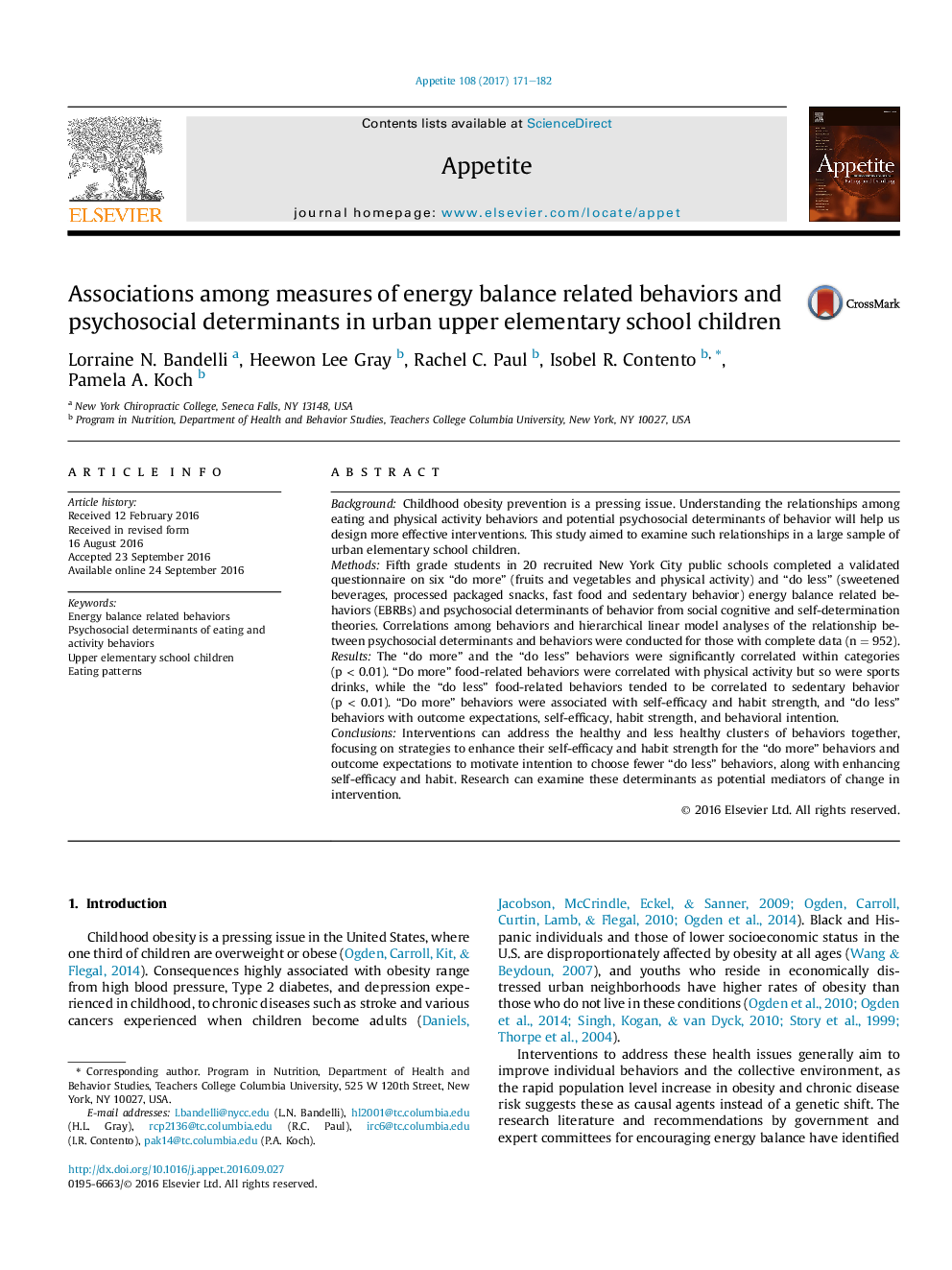| کد مقاله | کد نشریه | سال انتشار | مقاله انگلیسی | نسخه تمام متن |
|---|---|---|---|---|
| 5044401 | 1475372 | 2017 | 12 صفحه PDF | دانلود رایگان |
• Cross sectional study of upper elementary children's energy-balanced behaviors and determinants.
• Healthy and less healthy eating and physical activity behaviors were significantly related within categories and inversely related to each other.
• The healthy behaviors were generally explained by self-efficacy and habit, or “facilitating” determinants.
• The less behaviors were generally explained by outcome expectations, self-efficacy, goal intention, and habit, or “motivational” and “facilitating” determinants.
• Interventions need to address both “motivational” and “facilitating” determinants to help children reduce their less healthy behaviors.
BackgroundChildhood obesity prevention is a pressing issue. Understanding the relationships among eating and physical activity behaviors and potential psychosocial determinants of behavior will help us design more effective interventions. This study aimed to examine such relationships in a large sample of urban elementary school children.MethodsFifth grade students in 20 recruited New York City public schools completed a validated questionnaire on six “do more” (fruits and vegetables and physical activity) and “do less” (sweetened beverages, processed packaged snacks, fast food and sedentary behavior) energy balance related behaviors (EBRBs) and psychosocial determinants of behavior from social cognitive and self-determination theories. Correlations among behaviors and hierarchical linear model analyses of the relationship between psychosocial determinants and behaviors were conducted for those with complete data (n = 952).ResultsThe “do more” and the “do less” behaviors were significantly correlated within categories (p < 0.01). “Do more” food-related behaviors were correlated with physical activity but so were sports drinks, while the “do less” food-related behaviors tended to be correlated to sedentary behavior (p < 0.01). “Do more” behaviors were associated with self-efficacy and habit strength, and “do less” behaviors with outcome expectations, self-efficacy, habit strength, and behavioral intention.ConclusionsInterventions can address the healthy and less healthy clusters of behaviors together, focusing on strategies to enhance their self-efficacy and habit strength for the “do more” behaviors and outcome expectations to motivate intention to choose fewer “do less” behaviors, along with enhancing self-efficacy and habit. Research can examine these determinants as potential mediators of change in intervention.
Journal: Appetite - Volume 108, 1 January 2017, Pages 171–182
